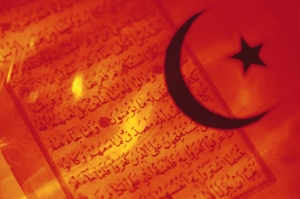Seven words that reveal Islam’s worldview
 Sharing our faith with Muslims requires Christians to know at least something about the religion Muhammad established 14 centuries ago.
Sharing our faith with Muslims requires Christians to know at least something about the religion Muhammad established 14 centuries ago.
Particularly enlightening are seven words that expose Islam’s view of the non-Muslim world and help us understand why Muhammad and his followers have consistently treated Christians with disdain.
Kafir. A kafir is “one who covers or conceals the known truth; an unbeliever.” In other words, a kafir is any non-Muslim.
Since kafirs reside outside the “world of Islam” and thus are in the “world of war,” they may be deceived, lied to, plotted against, enslaved, subjugated, mocked, tortured, driven from their homes, or killed.
Interestingly, nearly two-thirds of the Qur’an is devoted to the kafir, according to Bill Warner, founder of the Center for the Study of Political Islam. Further, nearly all of the Sira (the life of Muhammad) deals with the prophet’s struggle with kafirs.
The Hadith (traditions) devotes one-third of its texts to kafirs. Thirteen verses in the Qur’an instruct Muslims not to befriend kafirs.
It’s clear that Muhammad directed a great deal of animosity toward those who rejected his teachings.
Dhimmi. This is a second-class citizen in a Muslim-dominated society. By signing a dhimma treaty, non-Muslims are offered protection from physical harm or religious targeting. But there’s a catch.
Christians under the treaty, for example, may not renovate churches or monasteries, display crosses in public, or conduct religious ceremonies outside the church.
In addition, they must pay the Islamic tax (jizya) equal to 50 percent of their income, shaving their heads and kneeling before Muslim authorities as they render the tax, according to Warner.
Kafirs who want to avoid becoming dhimmis may either convert to Islam, or “face the sword.”
Taqiyya. This doctrine of deception empowers Muslims to deny their faith or commit otherwise illegal or blasphemous acts while they are at risk of persecution. It was developed to protect Shi’ite Muslims, who usually were in the minority and under pressure from rival Sunnis.
For all practical purposes, however, the doctrine has been expanded to encourage any deceit that advances Islam.
Qur’anic scholar Al-Tabari explains, “If you [Muslims] are under their [infidels’] authority, fearing for yourselves, behave loyally to them, with your tongue, while harboring animosity for them…. Allah has forbidden believers from being friendly or on intimate terms with the infidels in place of believers – except when infidels are above them [in authority].”
Dawa. Also known as “stealth jihad,” dawa is the spread of sharia law by subtle, non-violent means, including resistance to assimilation; intimidation of critics; exploitation of democratic legal systems; and the portrayal of any scrutiny of Islamic doctrine as “Islamophobia.”
Abrogation. This doctrine states that when two passages in the Qur’an contradict, the more recent passage “abrogates,” or overrides, the earlier one.
The Qur’an was written in two places at two different times. The Meccan passages are earlier, mostly religious, poetic, and peaceful. The Medinan passages are later, more historical and political, and quite violent.
For example, one earlier passage reads that Muslims should tolerate and forgive People of the Book (Jews and Christians – Surah 2:219). But a later passage (Surah 9:29) commands Muslims to attack People of the Book until they pay the jizyah, submit to sharia law, and are humbled.
Which one is true? Using dualistic logic, Muslims argue that both are true – but the later passage takes precedence over the earlier one. Thus, hatred and violence are more obedient ways to treat Christians than peaceful coexistence.
Shirk. This is the unpardonable sin of practicing idolatry or polytheism. For example, the Christian belief that Jesus is the Son of God is blasphemous to Muslims, resulting in hell.
Muslims have a high regard for Jesus, believing Him to be one of Islam’s greatest prophets, and also to be virgin-born, sinless, and a miracle worker.
But they deny that Jesus died on the cross or rose from the dead, and they flatly reject His deity.
Jihad. The Arabic word means to strive or struggle. Muslims explain that there are two kinds of jihad – the “greater jihad,” an internal struggle to resist temptation and obey Allah; and the “lesser jihad,” or taking up the sword.
Interestingly, there is very little in Muslim’s authoritative writings about the “greater jihad.” The life and teachings of Muhammad are almost exclusively devoted to actual fighting in order to defend Islam or to propagate the religion.
In that respect, jihad is Islam’s Great Commission, and it has resulted in the deaths of 270 million non-Muslims over the last 14 centuries.
